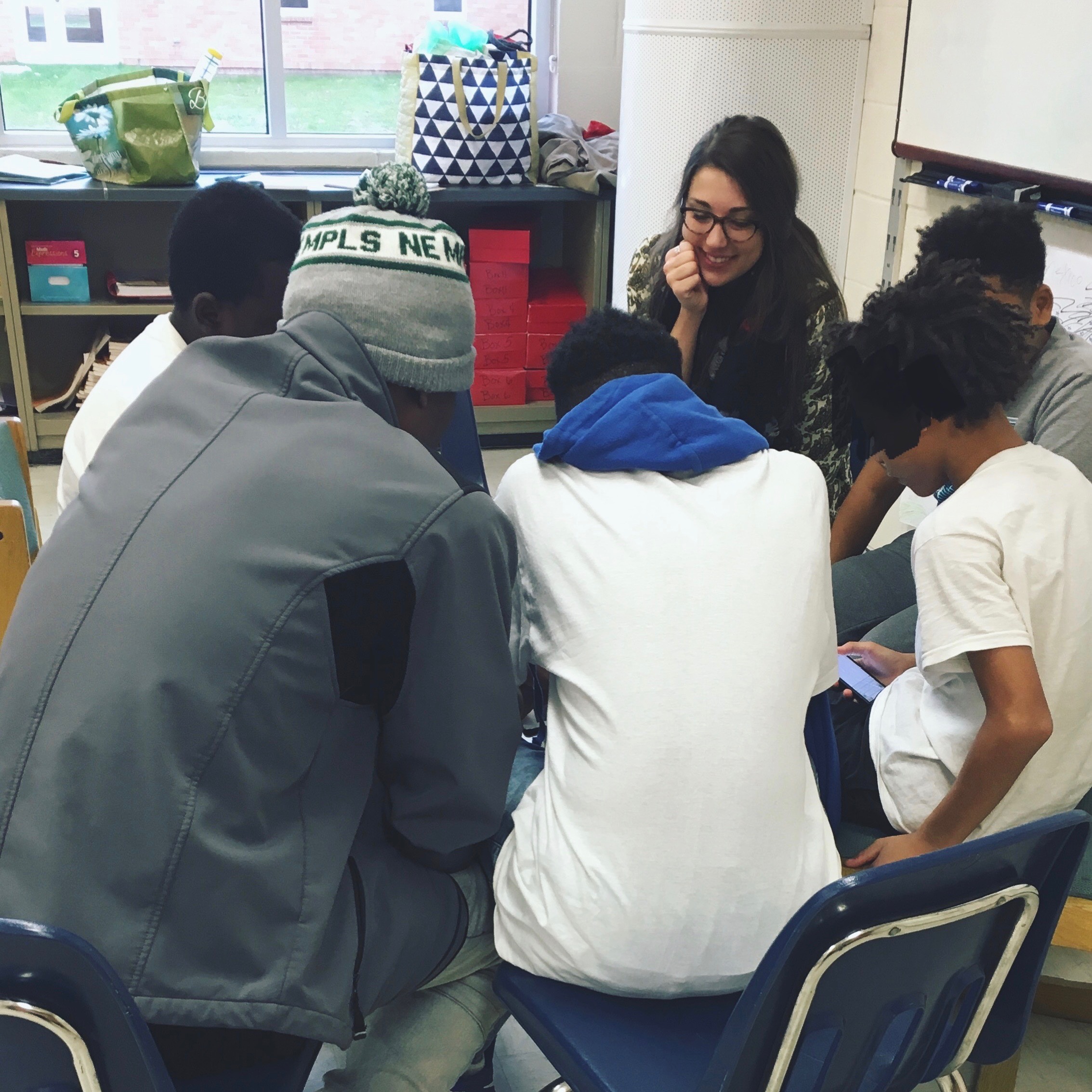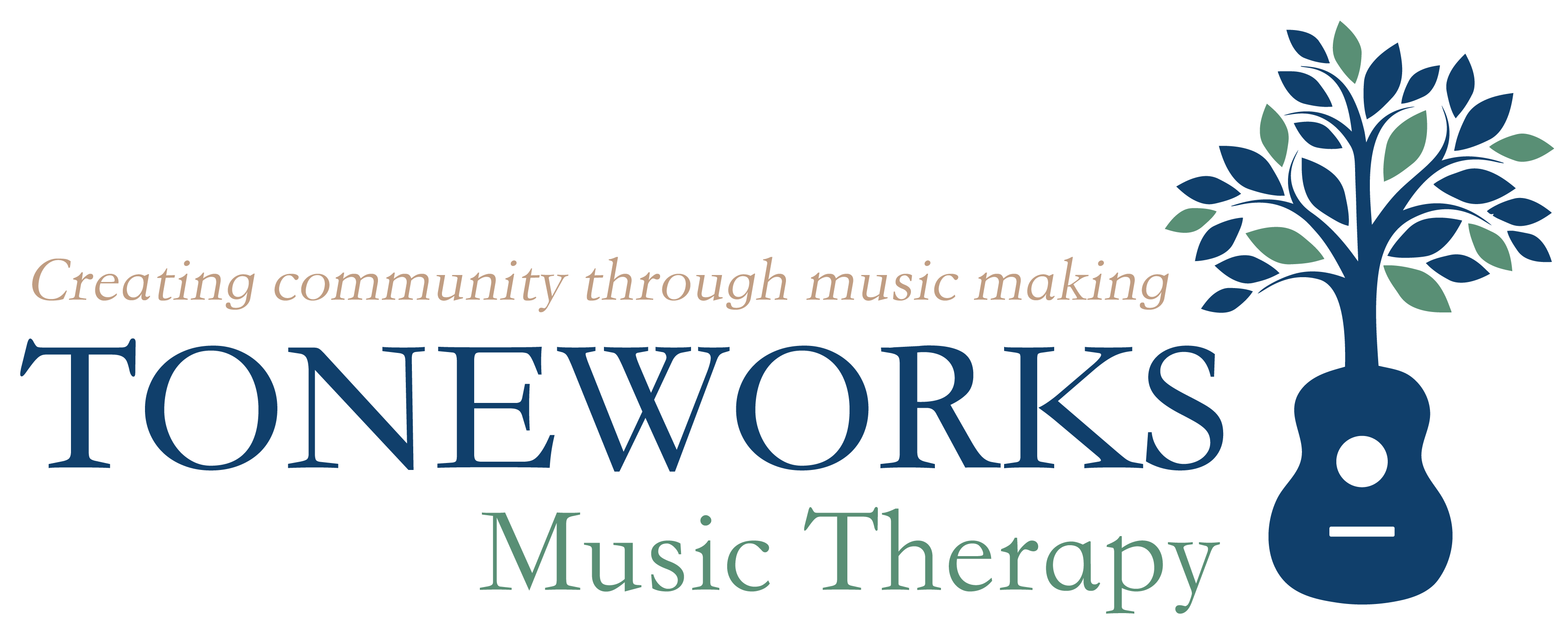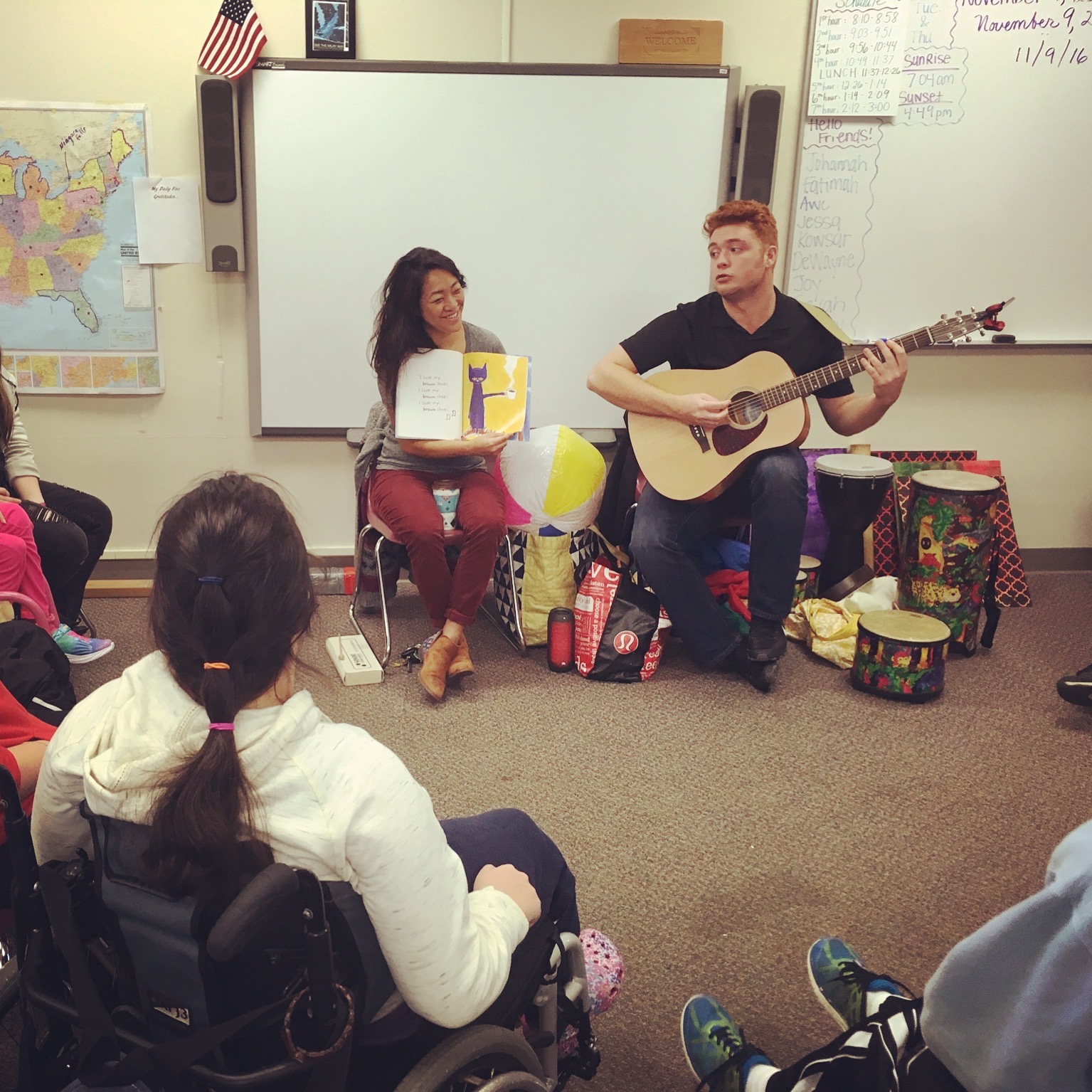Schools: Groups + Individual Sessions
Schools: Groups + Individual Sessions
School services can be delivered in many different ways in a variety of settings. These options include group, individual, or consultation services. This ensures that the most appropriate and effective use of music therapy is provided for each student. If you are a teacher, parent or administrator and are interested in exploring music therapy services for your students, please contact us for more information!
Goal areas may include:
- Self-Regulatory skills - implementing coping and calming strategies, decreasing aggression, and accepting and/or seeking out adult help
- Social skills - appropriate sharing, cooperating, taking turns, accepting others’ ideas, following rules, transitioning safely from activity to activity, and sharing experiences
- Self-Help and Emotional skills - identify and appropriately express feelings, using words or augmentive and alternative communication, develop empathy
- Gross and Fine Motor functioning - range of motion, palmar and pincer grasp, meeting and crossing midline, and progressive muscle relaxation
- Communication skills - conversation, gestures/body language, sign language, quality of voice, expressive and receptive language
- Cognitive skills - academic concepts (e.g. identifying colors, math concepts, reading), attention, executive function

Music therapy IEP enrichment groups:
Therapuetic Music Interventions may include:
- Provide Strategies: for learning that address functional goals for students in special education programs
- Can Happen: in level 2, 3, or 4 classrooms and inclusion classrooms
- Will Emphasize: development-based skills including visual tracking, language processing, communication skills, sensory stimulation, development cognitive and academic skills, and social and emotional skills
- Movement to music: Using dance and gross motor movement to improve social, motor, and communication skills.
- Singing: Using call-and-response, performing, and group singing to improve self-regulation, social, academic, motor, and communication skills.
- Functional music skills: Using a variety of instruments to explore musical concepts like tempo, melody, and leading
- Sensory exploration: Using a variety of props and tools that improve self-regulation and motor skills

